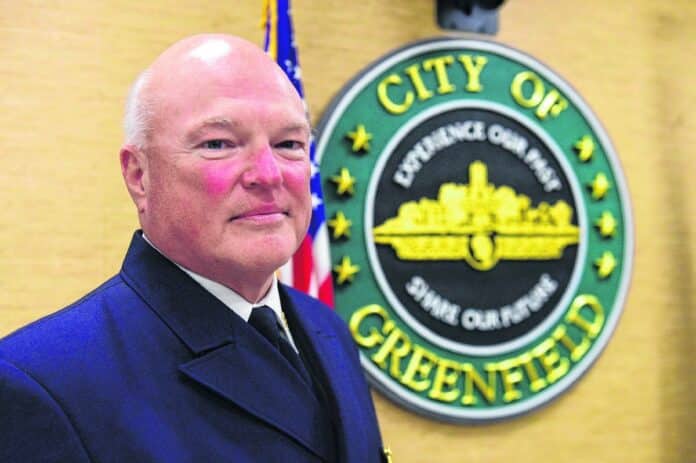
GREENFIELD — The Greenfield City Council has approved an increase in a tax funding fire equipment replacement, which officials said will be helpful for the fire territory but barely noticeable on the tax bills of county property owners.
The tax rate for the Greenfield Fire Territory Cumulative Fire Equipment Replacement Fund property tax will increase from $0.0298 per $100 of assessed value to $0.0333 of assessed value.
Although the increase is small, Chief Brian Lott said it will be helpful for the department, netting approximately an $85,000 increase in revenue beginning in 2022. That will go toward the cost of purchasing expensive equipment needed for the fire territory, including a new ladder truck that will cost $1.2 million. A tanker that is 30 years old will also need to be replaced soon, Lott said.
The increase sets the fire equipment tax at the highest level it can go, according to state law. Greenfield Mayor Chuck Fewell said it makes sense to give the fire territory the extra assistance.
“I think it’s necessary to keep us in the safety business,” he said.
For some homeowners, there will be no increase at all: Homes that are worth more than $165,000 have already reached the tax cap for such expenses and will not see an increase. A homeowner whose house is worth $150,000 would see their taxes increase by $4.57 per year.
When Lott became fire chief in 2020, taking a closer look at the territory’s equipment needs was one of his biggest priorities, he said. He said the previous approach to replacing and upgrading equipment was “more reactive than proactive,” but that it’s possible to predict when new purchases will be necessary and plan ahead.
“We’ve got to have a vision; everybody needs to know the playing field and where we’re headed,” he said.
Lott included 14 fire territory employees, including those with all levels of experience, in the process of creating a new three-year department plan. The plan will be revisited each year so the territory always has a three-year extrapolation of where it’s headed, as well as a five-year capital plan to make sure it can pay for it.
In addition to new vehicle purchases, the plan also includes goals for what training courses employees should be taking and improvements like upgrades that will allow fire trucks to more easily connect to the internet.
“We’re doing a lot more planning than we ever have in the past,” Lott said.
